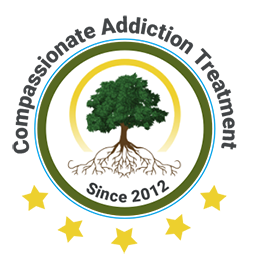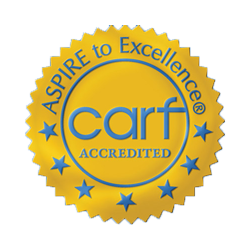Heroin Addiction Recovery Center in Arizona
If you or a loved one are suffering from Heroin addiction, it’s time to take steps toward recovery, don't let addiction control your life. Renaissance Recovery Center is located in Arizona and fosters healing through Gospel-centered programs and treatment. Many conditions are covered by insurance under mental health provisions.
Contact us for a free consultation to learn more about our heroin addiction treatment center at (480) 526-7738.
What Is Heroin?
Heroin is a substance derived and refined from the poppy plant. It is an opioid, in the same class as codeine, morphine, oxycodone (Oxycontin, Percocet, etc.), hydrocodone (Vicodin, Lortab, etc.), codeine, fentanyl, among others.
Heroin is found in a number of forms; most commonly white powder, brown powder, or black tar. It can be smoked, snorted, or injected. This drug is highly addictive and carries a significant risk of overdose.
Heroin is used for the immediate pleasurable feelings it can elicit. Over the past decade, heroin use has increased by over 50%, and those meeting the criteria for heroin use disorder has doubled.
Why is Heroin Addictive?
Heroin has fast become a more mainstream drug. Its use has increased significantly across virtually all segments of our society. While some can get away with recreational use; for most, heroin use becomes far more serious.
Addiction is marked by continued and increased efforts to obtain, use, and recover from the drug. Those suffering will continue to use despite experiencing negative consequences.
Tolerance is marked by the need to use more heroin to achieve the same results. Often, the user will need more pure heroin or will graduate to different methods of using, such as smoking or shooting the drug.
Dependence occurs when you need the drug to feel normal. Withdrawal symptoms will be experienced when heroin is removed.
Heroin or opioid, dependence occurs due to the way the drug interacts with opioid receptors. These receptors play a role in pain modification, along with the reward “pleasure centers” of the brain. There are powerful biological, emotional, and psychological factors that lead to heroin dependence.
Opiate Overdose
Perhaps the most serious effect of heroin is an overdose. Opiate overdoses have increased at an alarming rate over the past decade. Heroin is more available and accessible than in the past. The drug is also found in higher purity. Additionally, heroin can be cut with other potent drugs (such as fentanyl), creating a higher risk of overdose. Heroin overdoses can result in severe and permanent medical conditions, and often leads to death.
Heroin/Opioid Rehab & Treatment
Heroin Detox
Many challenged with heroin addiction need some type of professional help. Due to the intensity of withdrawal symptoms the user typically experiences, detox is often the first step. There are different levels of detox:
- Medically supervised detox-often done within a hospital setting
- Outpatient detox—typically involving detox medication therapies such as suboxone, Vivitrol (naltrexone), or methadone.
It is important to have some type of medically administered and monitored treatment for this first stage of the recovery process.
Heroin Addiction Treatment
Many people transition from detox to varying level of rehab. This is where recovery begins. There are different types of treatment: inpatient, residential, day treatment (PHP), intensive outpatient, outpatient, counseling, etc. The level of care depends upon the needs of each individual.
The treatment provides support, structure, and resources to deal with the underlying causes of addiction; often emotional or mental health-related. Addiction is more than just a physical disease. Many struggle co-occurring conditions such as:
- Anxiety
- Depression
- Bipolar disorder
- Trauma or abuse issues
For many, this requires a dual diagnosis approach involving behavioral therapies, medication management, and other forms of counseling services.
Heroin Sober Living:
Sober living or transitional housing is helpful in providing mid-term social, community therapeutic support to those in early recovery from addiction. Your treatment provider should be able to utilize these resources when necessary.
Heroin Family Support:
Addiction is a disease that often affects the entire family system. Counseling services can provide needed relief for family members and addicts. Sobriety outcomes increase significantly when the family system is involved.











